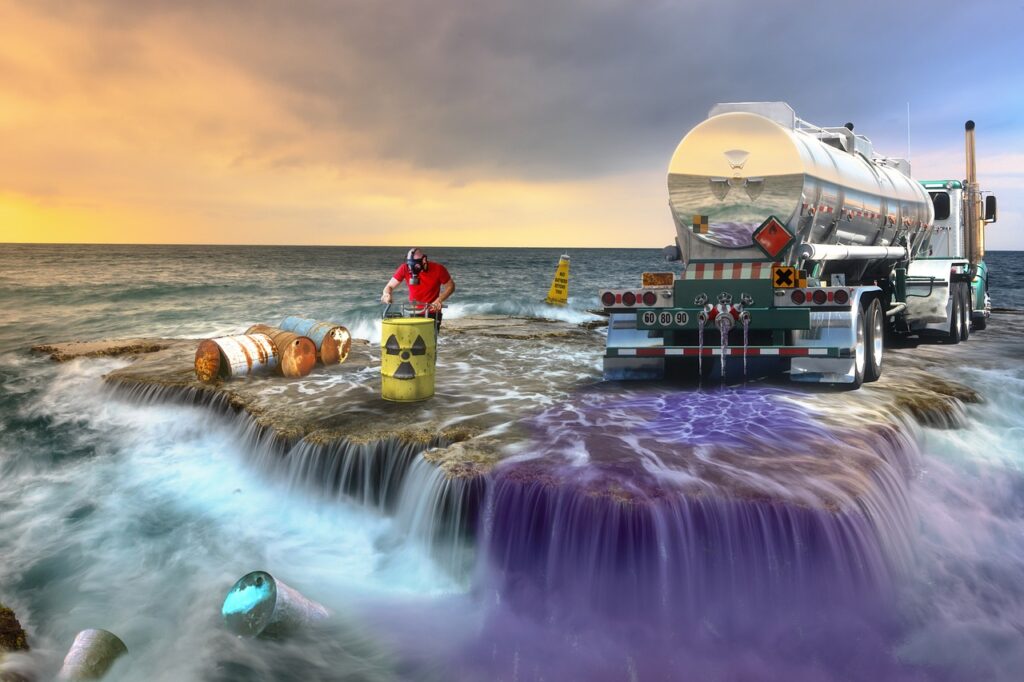Introduction:
The pervasive use of single-use plastic has undoubtedly made our lives more convenient, but it comes at a steep price for marine life and ocean ecosystems. These seemingly harmless disposable items, such as plastic bags, bottles, and straws, have become a menacing threat to our planet’s marine biodiversity. This article explores the detrimental effects of single-use plastic on marine life and ocean ecosystems, while shedding light on a practical solution – reusable bags (gbags).
The Plight of Marine Life:
Marine life, from the smallest plankton to the majestic whales, is under relentless assault from the harmful consequences of single-use plastic pollution. Plastic waste entering our oceans causes irreversible damage to marine habitats, disrupting ecosystems and endangering countless species.
One of the most tragic consequences of plastic pollution is marine animals mistakenly ingesting plastic items, often confusing them for food. Plastic bags, in particular, are a major culprit in this regard. Sea turtles, for instance, often mistake floating plastic bags for jellyfish, a staple in their diet. Consuming plastic can lead to starvation, intestinal blockage, and even death.
Similarly, seabirds frequently consume small plastic particles, mistaking them for prey. As plastic accumulates in their digestive systems, it reduces the space for nutritious food, leading to malnutrition and eventual death.

Microplastics: The Invisible Menace:
Single-use plastic breaks down into microplastics, particles less than 5mm in size, which have become pervasive in marine environments. These microplastics easily infiltrate marine food chains, with devastating effects on various species, including fish and shellfish. Eventually, these toxic particles find their way to human consumers, posing potential health risks.
Ocean Ecosystem Disruptions:
The environmental impacts of single-use plastic extend beyond direct harm to marine life. The excessive presence of plastic waste alters the marine ecosystem, leading to disruptions in natural processes.
For example, plastic debris can smother and damage coral reefs, critical habitats for countless marine species. The degradation of coral reefs has far-reaching consequences, affecting not only marine biodiversity but also the livelihoods of millions of people dependent on these ecosystems.
A Practical Solution – Gbags:
Amidst the grim reality of plastic pollution in our oceans, a practical and actionable solution is gaining momentum: reusable bags, or gbags. Reusable bags are a sustainable alternative to single-use plastic bags, effectively reducing plastic waste and its impact on marine life.
1. Durability and Reusability: gbags are crafted from durable materials like cloth, jute, or recycled plastics, allowing them to be used repeatedly. A single gbag can replace hundreds of disposable plastic bags over its lifetime, significantly reducing plastic pollution.
2. Lesser Environmental Footprint: The production of reusable bags generally has a lower carbon footprint compared to single-use plastic bags. By opting for gbags, individuals can contribute to mitigating climate change and promoting a more sustainable future.
3. Marine Conservation: By reducing plastic waste, gbags play a crucial role in safeguarding marine life and preserving the delicate balance of ocean ecosystems. With fewer plastic bags entering the oceans, the threat of ingestion and entanglement for marine animals is substantially reduced.
4. Cost-Effective: Although some reusable bags may have a slightly higher upfront cost, they save money in the long run since they can be used repeatedly. Many retailers also offer discounts or incentives to customers who bring their own bags, encouraging wider adoption.
5. Mindful Consumer Choice: By choosing gbags, individuals send a strong message to manufacturers and policymakers that they prioritize sustainable practices over plastic convenience. This consumer demand can lead to more significant changes in corporate practices and government policies.
Conclusion:
The devastating impact of single-use plastic on marine life and ocean ecosystems calls for immediate action. Reusable bags, or gbags, emerge as a practical and sustainable solution to reduce plastic waste and protect marine biodiversity. By adopting this simple change in our daily lives, we can collectively contribute to healing our oceans, ensuring a healthier planet for generations to come. It is time to embrace gbags as the pathway to a cleaner, greener future for our oceans and all the marine life that calls it home.
